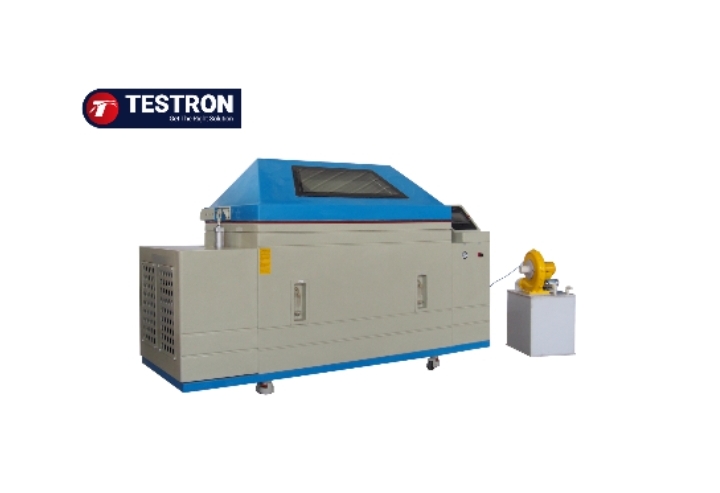
The HCL Corrosive Gas Test Chamber is a closed chamber used to assess the effect of exposure to hydrochloric acid and other industrial caustic gases on specific products and substances. These kinds of chambers are essential in the aerospace, automotive, electronics and chemical processing industries where it is critical to know how long a particular material can withstand hostile conditions. Below are five of the many reasons why an HCL Corrosion noxious gas test chamber is among the most useful tools in the corrosion testing industry.
Controlled Environmental Conditions
One of the major aspects of any HCL Corrosion Noxious gas test chamber is the capability to keep the environmental aspects of the chamber under control such as the temperature, the humidity, and the concentration of corrosive gas. This chamber incorporates sophisticated sensors and controls, which facilitate the mimicking of the actual exposure of the test specimens to HCl gas and other HCl-containing substances. This in turn ensures that reliable and consistent results are achievable in the tests done for the evaluation of materials especially those that rely on the use of materials of very high quality.
2. Strong structural Composition
HCL corrosion test chambers are manufactured from materials that can endure harsh conditions without the corrosion of the battery of the chambers which in most cases
includes stainless steel and other specialized coatings. Such structure guarantees the durability and structural soundness of the chamber, eliminating the risk of cross-contamination of the specimens under study. The strong construction design also increases security by reducing incidents such as chamber leaks or malfunction, which protects both the users, and the experiment results from unwanted disturbance.
3. Comprehensive Testing Abilities
These cabins perform a variety of analyses on metals, plastics, and coatings, as well as corrosion processes carried out within short durations, such as salt mist, and prolonged process running. Such flexibility is advantageous to the manufacturers designing and testing several products at the same time. The chambers can also accept various sample sizes even in the most intense projects of testing implementations, which helps address all evaluations according to their goal in each sector.
4. Real-Time Monitoring and Data Logging
A critical aspect of HCL corrosion test chamber technology is the capability for real-time monitoring and data logging that enables the recording of parameters used during testing such as temperature and concentration of the gas. The use of advanced programs allows the researcher to collect and analyse data over a certain period of material performance.
Evaluation of the performance of various factors improves the accuracy of the test and aids the selection of appropriate materials in product development and thus encourages creativity and advancement in material engineering.
5. Safety Features and Compliance
When employing HCL or any other corrosive agent, safety becomes a priority. Within these test chambers, safety precautions such as shut-down systems, gas detection systems, and vent systems to eliminate the build-up of hazardous gases are integrated within them. Test chambers are also constructed to meet the specification ranges of standards to enable controlled and safe testing without endangering the users or the environment, hence responsible conduct when embarking on the research of materials.
Applications of HCL Corrosion Noxious Gas Test Chambers
HCL corrosive gas test chambers for the most part find applications in many inter-related fields because it is highly necessary to appreciate the behavior of materials when subjected to a corrosive environment. Here are five important uses:
1. Aerospace Industry
Extreme conditions define the aerospace industry, which involves the use of several components, including corrosive gas. HCL corrosion test chambers are employed for assessing the durability of materials and surfaces of the aircraft components subjected to the calling conditions of corrosion damage during operations and stand periods. The significance of this practice cannot be overstated as it aims at improving the safety and efficiency of aircraft, earning the trust of the passengers.
2. Automotive Manufacturing
HCL corrosion test chambers for the automotive industry are also used to assess the performance of various composite materials and coatings for cars, e.g., metals and plastics. The knowledge of the behaviour of these materials exposed to the action of aggressive gases contributes to the creation of more reliable cars and helps to avoid expensive maintenance problems in the field. This helps manufacturers to provide vehicles that are reliable over time, which is critical to the satisfaction of customers and the image of the brands.
3. Electronics Testing
The development of electronics entails integration within smaller and more complicated devices. With this compression comes a greater need for dependable materials. As such, HCL corrosion test chambers are also used in evaluating printed circuit boards and other electronic hardware components against exposures to corrosive environments that are likely to be encountered in actual use conditions. This is important to mitigate the impact of electronic failure that may hinder the functionality of the device thereby affecting the consumer confidence in the electronic products.
4. Chemical Processing
In the chemical processing industry and related activities, equipment and materials are often exposed to harsh environments including hydrochloric acid among others. These corrosion test chambers are employed to study the endurance of materials being used in reactors, fittings, and storage vessels, which is crucial in the chemical production process. This is because routine examination helps eliminate risks of leaks or equipment failure which caps the exposure of workers and the surroundings to any harm.
5. Research and Development
Research and development institutions employ HCL corrosion chamber tests to study the behaviour of materials under simple and complex environments. This is extremely important for the development of performance-based materials and protective coatings to enhance various industries. Where industry and academia are keen enough, progress in technology devices or systems can be remarkable.
HCL corrosion test chambers are designed to test materials’ performance in corrosive conditions, and therefore, they are in high demand. These high-tech and highly demanded test chambers contain many features such as a controlled environment, strong structure, multipurpose testing, monitoring in real-time and protection, thus, they are used in many fields. Additionally, the integration of technologies like the accelerated aging test chamber enhances their capability to simulate long-term exposure to harsh environments. Their use in the aerospace, automotive, electrical, chemical and scientific engineering establishments gives credence to the need to innovate and protect the use of these materials. HCL corrosion test chambers will sort many industries in the future as they will be needed in the production of materials in components and devices that are safe and dependable to meet contemporary requirements.

